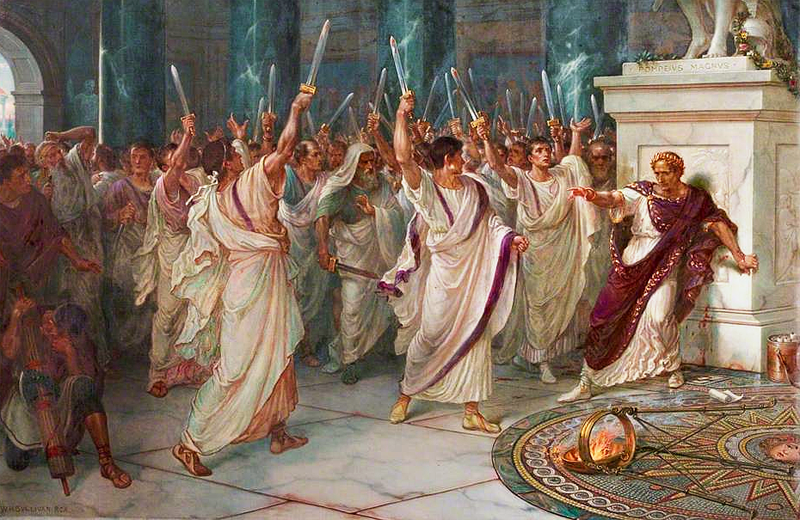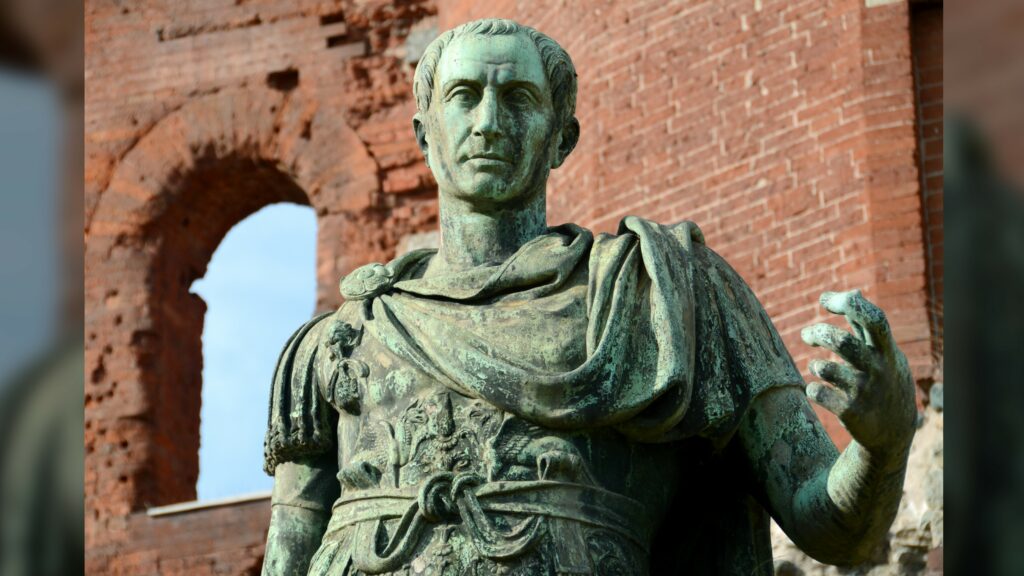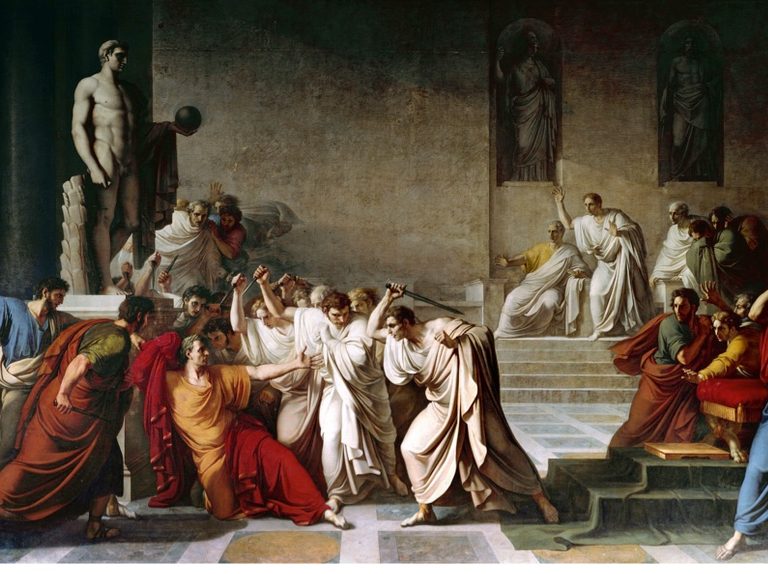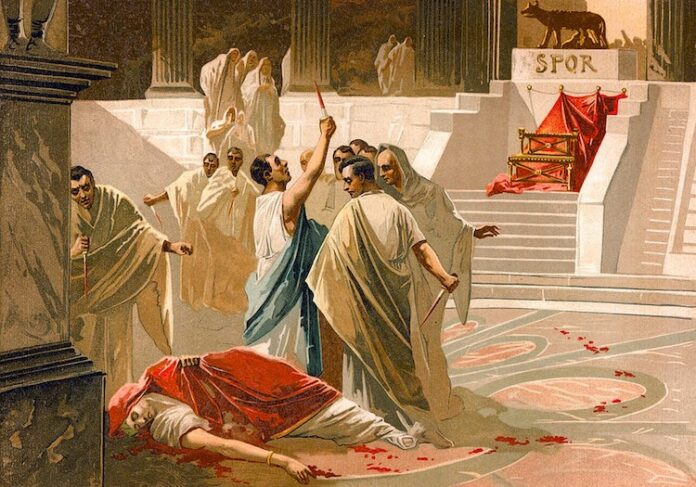High school students around the country study Ancient Rome more than any other ancient culture. This ensures that most people are familiar with one of its most renowned leaders from an early age: Julius Caesar. For his part in Rome’s transformation from republic to empire, the Roman politician Julius Caesar deserves renown. At Rome, he held the position of consul before rising to the position of dictator.
At Rome, Julius Caesar rose to the position of dictator. He was helped along by both money and combat.
He was born on or around July 13, 100 B.C., and was assassinated in the Roman Senate on March 15, 44 B.C.
When he was slain, he was the most powerful man in the Roman Republic, having been chosen dictator for life. Historian Adrian Goldsworthy described Caesar as a “politician and statesman who eventually acquired supreme authority in the Roman Republic and constituted himself a monarch in every practical respect, although he never took the name king” in his book “Caesar: Biography of a Colossus“
Also Read: How Old Was Alexander Hamilton When He Died? Reason Behind His Death
Who Was Julius Caesar?

Caesar, Gaius Julius 12 July 100 BC–15 March 44 BC), was a Roman general and statesman. Caesar, a member of the First Triumvirate, commanded Roman forces throughout the Gallic Wars, won a civil war over his opponent Pompey, and ruled as dictator from 49 BC until his assassination in 44 BC. The events that led to the fall of the Roman Republic and the establishment of the Roman Empire were greatly influenced by his actions.
The First Triumvirate was an informal political partnership founded by Caesar, Crassus, and Pompey in 60 BC that ruled Rome for several years. The Optimates in the Roman Senate, led by Cato the Younger and frequently backed by Cicero, fought against the Populares’ attempts to consolidate power.
With the Gallic Wars finally over by 51 BC, Caesar had risen to prominence as one of the most influential politicians in the Roman Republic. A bridge across the Rhine River was constructed at the same time he conquered Great Britain.
These successes, along with the backing of his seasoned army, posed a challenge to Pompey’s reputation as a senator. Because he had reconciled himself with the Senate following Crassus’s death in 53 BC. The Senate demanded Caesar relinquish his command of the army and return to Rome at the end of the Gallic Wars. Caesar crossed the Rubicon and marched his army towards Rome in open defiance of the Senate’s authority in 49 B.C. This sparked the civil war that eventually gave Caesar almost absolute power and influence in 45 BC.
Death Of Julius Caesar

Around forty Roman senators plotted and executed Julius Caesar on the “ides of March” (March 15). After Caesar’s assassination in 44 B.C.E., the Roman Republic collapsed and the Roman Empire was born.
Julius Caesar was stabbed to death in Rome, Italy, on March 15, 44 B.C.E. The Roman senators who killed Caesar were themselves influential politicians. Who had a hand in shaping Roman policy and government.
The Roman populace had an enormous amount of respect for Julius Caesar. As a brilliant military strategist, he enlarged the republic to cover present-day territory in Spain, France, Germany, Switzerland, and Belgium. Caesar’s writings, which detailed his adventures, thoughts, and political beliefs, were very popular.
Caesar’s popularity and arrogance were hated by many in the Senate. A body of appointed (rather than elected) political leaders. As Caesar became dictator for life in 44 B.C.E., these authorities determined to deal the final blow to his authority. On the 15th of March, the ides of March, a group of up to 60 conspirators met in the Senate and plotted to kill Caesar. The group allegedly stabbed Caesar 23 times, resulting in his death as leader of the Roman Empire.
Julius Caesar’s assassins were disappointed by the aftermath of his death. The senators were blamed by many Romans for the assassination, which sparked a series of civil wars. Octavian, Caesar’s grandnephew and adopted son, eventually became ruler of Rome. Augustus Caesar was his new name. It was during Augustus’ rule that the Roman Republic officially ended and the Roman Empire was formally established.
Read More: How Old Was Sacagawea When She Died? The Mystery Behind Her Death!
Conclusion

Caesar Gaius Julius was born on July 12, 100 BCE (though some cite 102 as his birth year). His mother, Aurelia Cotta, was a lady of great family, and his father, also named Gaius Julius Caesar, was a Praetor who oversaw the province of Asia.
Both groups adhered to the Populare ideology of Rome, which advocated for greater democracy and equality for the lower classes. In contrast to the Optimate factions’ belief in the inherent superiority of the nobles and old Roman virtues.
Please keep in mind that the Optimate and the Populare were not competing political parties. But rather competing political ideas that people of all social classes frequently switched between. Later in life, Caesar would find that he could gain more power by appealing directly to the people. Than he could by trying to win over the Roman Senate or the other Patricians.
Caesar’s influence was viewed as excessive by some Romans. Many Romans feared that his rule would spell the demise of the Republic. They planned to eliminate him through a conspiracy. Cassius and Brutus were the plot’s leaders. Caesar made his way into the Senate on March 15th, 44 BC. The men suddenly surrounded him, and one of them ordered the others to attack and murder him. He suffered 23 stab wounds.

